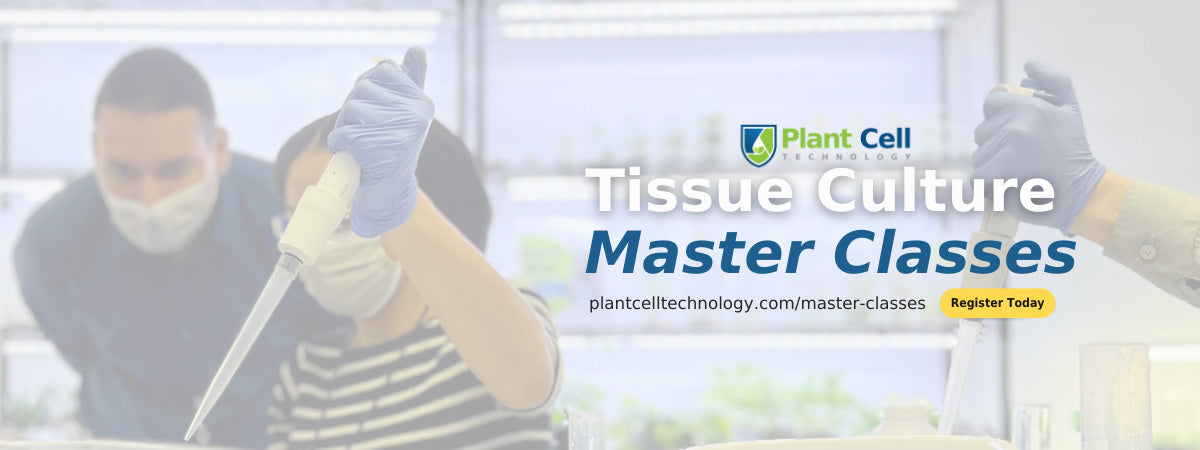
Exploring Germplasm Selection: Four Options for Cannabis Propagation

Overview
The genetic compatibility of the Cannabis plant with its environment determines its inherited potential and characteristics of the plant, such as:
- Cannabis plant's structure
- Cannabinoid synthesis
- Yield
- Resistance to pests
By understanding how the genotype affects the plant's characteristics, growers can choose cultivars that will excel in their specific production conditions.
When it comes to developing different varieties of plants, cannabis is a bit different compared to other plants we grow in gardens or farms. Because of its history of being illegal, it wasn't able to benefit from the advancements in plant breeding that happened in the past, such as those around the 20th century.
People used to grow cannabis in a hide, and as a result, many different types of cannabis plants were crossbred with each other. This led to a wide variety of cannabis plants with different characteristics.
Now, this diversity of cannabis plants gives us many genetic options to work with. We can study and understand the different genes and traits that these plants have. By doing that, we can make improvements and create cannabis plants that are even better suited for specific environments or have more desirable qualities.
So, even though cannabis missed out on traditional breeding methods, we still have a lot of potentials to make it even better through genetic research and understanding.
In this blog, we will dive more into understanding the necessity of the right germplasm selection for Cannabis propagation and the methods available today.

What is Germplasm?
Germplasm refers to the valuable seeds, plants, or plant parts that are important for crop breeding, research, and conservation.
When we talk about germplasm, we mean plants or seeds that are specifically kept and studied for their genetic information. It's like a collection of plant materials that scientists and breeders use to understand and use the genetic traits they possess.
So, what is germplasm selection?
Germplasm selection refers to the process of choosing the genetic material that will be used to grow new plants.
Selecting the right germplasm is essential for the success of Cannabis cultivation. The genetics of the plant decides its various characteristics, such as its ability to fight diseases, cannabinoid synthesis, yield, etc.
Let’s understand and explore more on this!

Why Is Germplasm Selection A Crucial Step in Cannabis Propagation?
Superior germplasm creates the genetic foundation of the plants being cultivated. By carefully selecting and preserving the best plant materials, such as seeds or clones, growers can ensure desirable traits like potency, yield, disease resistance, and overall quality in the offspring.
Germplasm selection allows for the continuation and improvement of specific cannabis varieties or cultivars, ensuring consistent and reliable production of high-quality plants.
It serves as the basis for breeding programs and helps growers establish a diverse and reliable genetic pool for future cultivation and research purposes.
4 Germplasm Options for Cannabis Propagation
Currently, there exist four alternatives for selecting germplasm: utilizing seeds, cloning from a seeded mother plant, employing tissue culture plantlets, and cloning from a tissue culture-derived mother.
Each technique has its pros and cons. Here’s a chart giving you a brief about it:
Figure: The different modes through which a commercial facility can acquire germplasm for cultivation purposes.
This image is taken from the article “Germplasm selection – from seed culture to tissue culture”, curated and published by Gary Yates.
Selecting Seeds
Seeds are the traditional choice for cannabis propagation. They offer a wide range of genetic diversity, allowing growers to explore various traits and characteristics. When selecting seeds, it is important to consider factors such as the seed's genetic lineage, desired phenotypic traits, and reputable seed banks. Proper seed germination techniques, including optimal temperature and moisture conditions, play a critical role in achieving successful propagation from seeds.

Clone From Seeded Mother
Cloning from a seeded mother plant involves taking cuttings or clones from a selected female plant that has been pollinated. This method allows growers to replicate the exact genetic traits of the mother plant, ensuring consistency in traits such as potency, flavor, and yield. Successful cloning requires careful selection of healthy mother plants, proper cutting techniques, and providing optimal environmental conditions for root development.
Tissue Culture Plantlets
Tissue culture is a cutting-edge technique gaining popularity in cannabis propagation. It involves growing cannabis plants in a sterile laboratory environment using small plant tissue samples. Tissue culture offers several benefits, including the production of disease-free plants, rapid multiplication of plantlets, and preservation of genetic purity. This method is particularly useful for preserving rare or endangered cannabis varieties and maintaining genetic stability.

Clone From Tissue Culture-Derived Mother
This option combines the advantages of tissue culture and cloning. By using tissue culture-derived mother plants, growers can ensure genetic stability and eliminate the risk of disease transmission. This method offers consistent quality and production, as well as the ability to propagate a large number of genetically identical plants. It is important to maintain proper hygiene and sterile conditions during the cloning process to prevent contamination.
CREATING AND PRESERVING YOUR "ELITE" CANNABIS VARIETIES THROUGH PLANT CELL TECHNOLOGY?
Plant Cell Technology is a leading company in the area of plant tissue culture. We conduct comprehensive tissue culture master classes led by industry experts with 10-30 years of experience.
The classes are designed to teach you everything about tissue culture, ranging from its basic introduction to pro techniques such as synthetic seed production (which can help you preserve your precious strain) and meristem culture (which enable you to produce disease-free plants). A range of other topics that will be covered during the class includes Pathogen remediation, sterilization techniques, synthetic seed technology, and many more.
Here’s our complete curriculum.
Our upcoming master class will be a 3-days class starting from August 24-26, 2023. It will be conducted by one of the legends in the Cannabis Tissue Culture Industry, Bill Graham.
The bookings for the class have already been started. And, for one-on-experience with our tissue culture expert, only a limited number of seats are available.
So, if you are interested in giving a boost to your Cannabis business, then book your seats TODAY!
Blog Categories
View by Level
Popular Blogs

DIY Plant Tissue Culture: Crafting a Unique and Living Gift This Holiday Season
Introduction The holiday season is a time for meaningful, heartfelt gifts that leave a lasting impression. While the charm of...
Read More
Tissue Culture of Haworthia Turgida
Introduction Can you tissue culture Haworthia plants too? Theoretically, it’s possible to tissue culture any plant. However, what’s essential is...
Read More








Join the conversation
Your email address will not be published. Required fields are marked